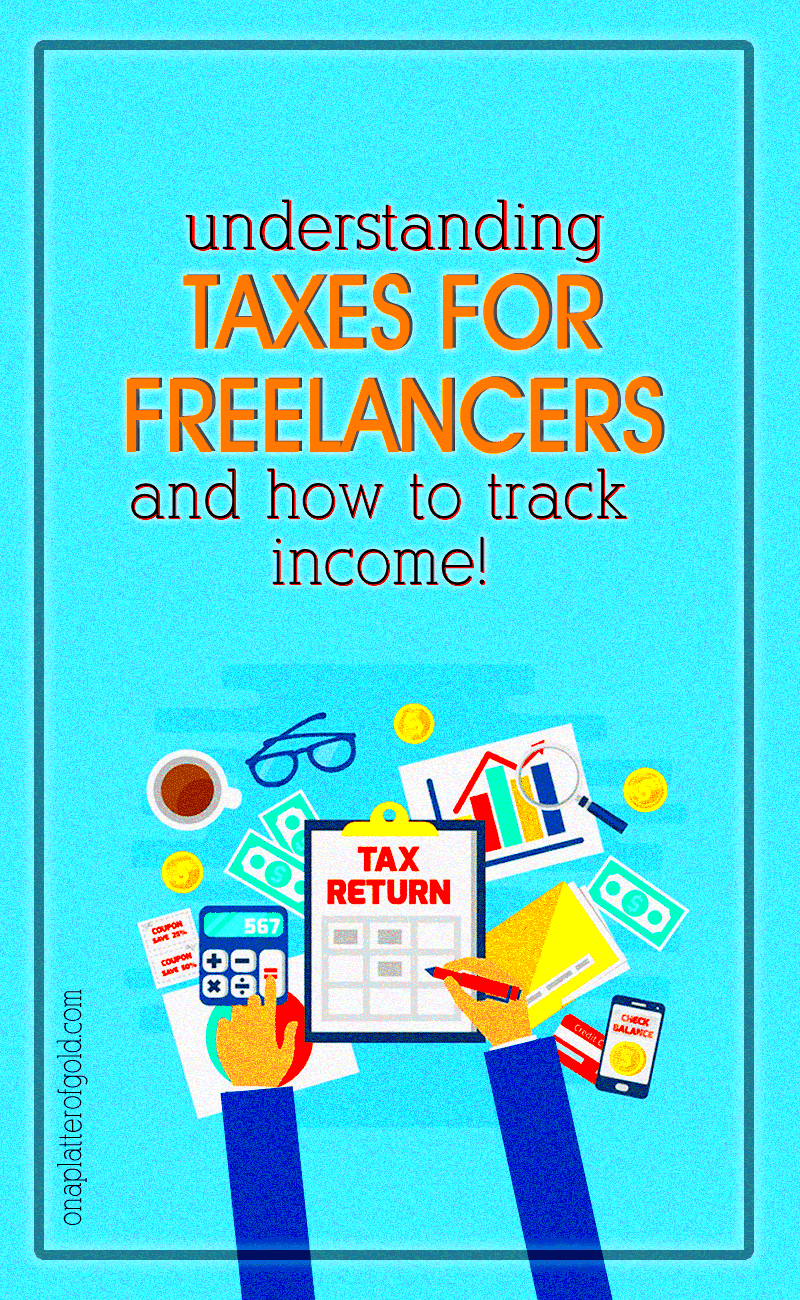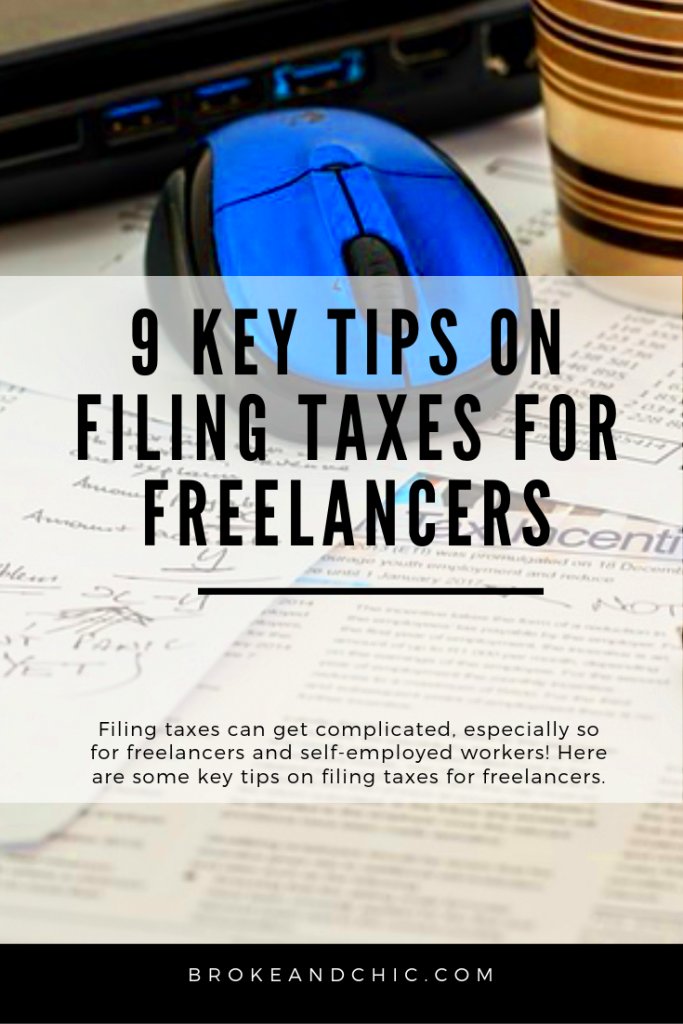As a freelancer, understanding your tax obligations is crucial to staying compliant and avoiding penalties. Unlike traditional employees, freelancers are considered self-employed, which means you have different tax responsibilities. You are responsible for reporting your income and paying your taxes directly to the government. This can feel overwhelming, but breaking it down makes it easier.
Here are some key points to remember:
- Self-Employment Tax: Freelancers must pay self-employment tax, which covers Social Security and Medicare. This tax is usually around 15.3% on your net earnings.
- Income Tax: In addition to self-employment tax, you must also pay federal income tax based on your earnings.
- Estimated Taxes: As a freelancer, you typically need to make estimated tax payments quarterly. This prevents a large tax bill at the end of the year.
Keep Accurate Records of Your Income

Keeping accurate records of your income is essential for a smooth tax season. Good record-keeping helps you track your earnings and simplifies the process of reporting them to the IRS. Here are some tips to help you maintain accurate records:
- Use Accounting Software: Consider using accounting software like QuickBooks or FreshBooks. These tools can help automate tracking your income and expenses.
- Invoice Every Client: Make sure to send invoices for all your work. This creates a paper trail and helps you keep track of what you’ve earned.
- Maintain a Separate Income Account: Having a separate bank account for your freelance income can help you monitor your earnings more clearly.
Also Read This: How to Gig on Fiverr: A Comprehensive Guide
Separate Your Business and Personal Finances

Separating your business and personal finances is one of the best practices you can follow as a freelancer. This separation not only makes accounting easier but also protects your personal assets. Here’s how you can effectively separate your finances:
- Open a Business Bank Account: Set up a separate bank account for your freelance income and expenses. This helps keep your business transactions distinct from personal ones.
- Use Business Credit Cards: If you need to make purchases for your freelance work, consider using a business credit card. This keeps your business expenses organized.
- Track Business Expenses: Regularly track your business expenses separately. This will make it easier to claim deductions at tax time.
Maintaining clear boundaries between your personal and business finances helps in understanding your cash flow and prepares you for tax reporting.
Also Read This: Should I Join Fiverr? A Comprehensive Guide for Freelancers
Know the Different Types of Income

As a freelancer, you may earn income from various sources, and understanding these different types is key to correctly reporting your taxes. Not all income is treated the same way by the IRS, so it's important to know how each type can impact your tax obligations. Here’s a breakdown of common income types you might encounter:
- Contract Income: This is the most common type of income for freelancers. It comes from clients who pay you for specific projects or services.
- Recurring Income: If you have ongoing contracts or subscription services, this income is stable and predictable, which can help with budgeting.
- Passive Income: This includes earnings from investments, royalties, or affiliate marketing. It's essential to report this income, as it is also taxable.
- Side Gigs: If you freelance in addition to a full-time job, this income must also be reported. It’s important to keep these earnings distinct for tax purposes.
Understanding these types of income helps you report accurately and ensures you don’t miss any deductions or credits available to you.
Also Read This: How to Be a Successful Voice Actor on Fiverr: Insights from Reddit
Track Your Expenses for Deductions
Tracking your expenses is not only essential for keeping your finances in order, but it can also significantly reduce your tax bill. As a freelancer, many expenses are deductible, which means you can subtract them from your taxable income. Here are some common deductions you should track:
- Home Office Expenses: If you work from home, you can deduct a portion of your rent or mortgage, utilities, and internet costs.
- Supplies and Equipment: Keep receipts for anything you purchase for your business, from software to office supplies.
- Travel Expenses: If you travel for work, you can deduct costs like airfare, hotels, and meals, but make sure to keep detailed records.
- Professional Services: If you hire accountants, consultants, or other professionals, their fees are deductible.
By keeping detailed records and receipts, you’ll ensure you can take advantage of all available deductions, making tax time much less stressful.
Also Read This: How to Get Affiliate Sales with Fiverr
Choose the Right Tax Form for Your Situation
Choosing the right tax form is crucial for freelancers. The form you need depends on your income level and business structure. Here’s a quick guide to help you decide:
- Form 1040: Most freelancers will use this form for their personal income tax return.
- Schedule C: This form reports income or loss from your business as a sole proprietor. It allows you to claim deductions for your business expenses.
- Schedule SE: This form is used to calculate your self-employment tax, which is important for freelancers.
- Form 1099: If you earn more than $600 from a client in a year, they should issue you a 1099 form, which you’ll need to report your income.
Understanding which forms to use helps you stay compliant and ensures you report your income and deductions accurately. Always consult with a tax professional if you’re unsure which forms apply to your situation.
Also Read This: How to Start as a Freelance Editor and Proofreader
Consider Hiring a Tax Professional
When it comes to managing your freelance taxes, hiring a tax professional can be a smart move. While it might seem like an added expense, their expertise can save you time and money in the long run. They can help you navigate the complexities of tax laws that apply to freelancers and ensure you maximize your deductions. Here are some reasons to consider hiring a tax professional:
- Expertise: Tax professionals stay updated on the latest tax laws and regulations, which can change frequently. They understand the nuances that may apply to your specific situation.
- Time-Saving: Preparing your taxes can be time-consuming. A tax professional can handle this for you, allowing you to focus on your work.
- Maximizing Deductions: They can identify potential deductions that you may not be aware of, helping you reduce your taxable income significantly.
- Avoiding Mistakes: Errors on your tax return can lead to audits or penalties. A professional reduces the risk of mistakes, providing peace of mind.
Overall, investing in a tax professional can provide valuable assistance and help you make informed financial decisions as a freelancer.
Also Read This: How to Start as a Freelance Medical Writer
Be Prepared for Estimated Tax Payments
As a freelancer, preparing for estimated tax payments is essential to avoid a hefty tax bill when you file your return. Unlike traditional employees who have taxes withheld from their paychecks, freelancers must estimate and pay their taxes quarterly. Here’s what you need to know:
- Understanding Estimated Taxes: These are payments made to cover your expected tax liability for the year. You typically need to make these payments if you expect to owe $1,000 or more when you file your tax return.
- Payment Schedule: Estimated tax payments are generally due on the 15th of April, June, September, and January. Mark these dates on your calendar to avoid late fees.
- Calculating Your Payments: To calculate your estimated taxes, you can use Form 1040-ES. It includes worksheets to help you estimate your income and tax liability.
- Adjust as Needed: If your income fluctuates throughout the year, you can adjust your estimated payments accordingly. This ensures you’re not overpaying or underpaying.
Being proactive about estimated tax payments will help you avoid surprises and keep your finances on track.
Also Read This: How to Start as a Freelance Designer
FAQs About Reporting Freelance Income
Freelancers often have questions about reporting their income and navigating tax obligations. Here are some frequently asked questions that can provide clarity:
- What qualifies as freelance income? Freelance income includes any payment you receive for services rendered as a self-employed individual, such as contract work, consulting, or gigs.
- Do I need to report all my income? Yes, you must report all your income, even if you don't receive a 1099 form from a client. The IRS requires you to report every dollar earned.
- Can I deduct my home office expenses? Yes, if you use a portion of your home regularly and exclusively for your business, you can deduct related expenses.
- What happens if I miss an estimated tax payment? If you miss a payment, you may incur penalties and interest. It's best to make the payment as soon as possible to minimize penalties.
Understanding these common questions can help you feel more confident as you report your freelance income and manage your taxes.
Conclusion on Reporting Freelance Income
Reporting freelance income can seem daunting, but with the right knowledge and tools, it becomes manageable. Understanding your tax obligations, keeping accurate records, and tracking expenses for deductions are all vital steps in ensuring you comply with tax laws while maximizing your earnings. Additionally, considering the assistance of a tax professional can save you time and reduce the stress of navigating complex tax regulations. Preparing for estimated tax payments helps you avoid unexpected tax bills, allowing you to maintain control over your finances. Finally, addressing common questions about reporting can provide clarity and confidence. By staying organized and informed, you can effectively manage your freelance income and focus on what you do best—your work.




